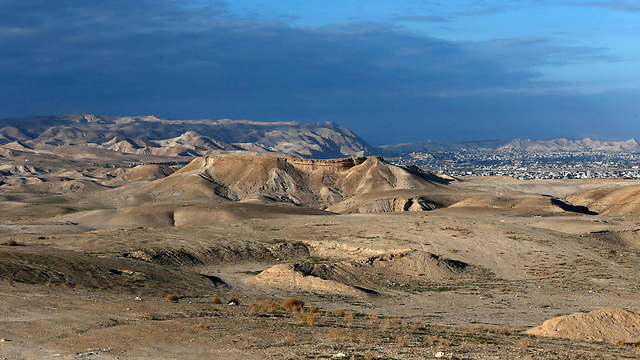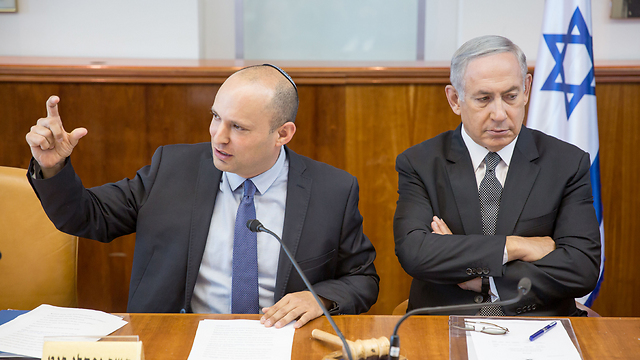Op-ed: A new initiative aims to have the question of the Palestinian territories’ fate answered via a referendum in Israel. While some on the left have praised the idea, right-wing politicians have been quite silent on it so far. And how should PM Netanyahu, who has publicly supported the two-state solution, feel about this?
On Monday, a new initiative popped up: A new organization called Mahlitim BeHamishim (“Decision at 50” in Hebrew) is calling for a referendum among Israelis regarding what is to be done with the Palestinian territories, with the 50th anniversary of the Six -Day War and Israel’s control of said territories less than a year away. The organization is lead by former ministers and MKs from center-left parties, as well as public figures, peace activists, and others.
According to Mahlitim BeHamishim leaders, they will try and make sure that a bill promising a referendum on the topic during 2017 be proposed in the Knesset as soon as it is back in session. In other words: They want to influence the government to strive for a two-state solution instead of treading water.
Estimates in political circles say that center-left parties will support the initiative and right-wing parties will oppose it. If that’s the case, the initiative’s chances are slim indeed, and it is destined to fall like others before it. The fact that in the days since its publication the main voices if support for the Mahlitim BeHamishim have come from Tzipi Livni, Isaac Herzog, Zehava Galon and others on the left isn’t very surprising. What is strange is the silence from right-wing political leaders.

There are those in political circles who believe right-wing politicians may see the proposal as a significant opportunity. Parties such as Bayit Yehudi and perhaps Yisrael Beytenu as well could support the initiative in order to once and for all determine the question of the territories’ future, believing that the majority of the Israeli public supports Israel’s continued control of them and that a decisive victory on this issue could give a huge boost for the settlement movement. There’s also the possibility that such an initiative would embarrass the prime minister, who claims publically to be in support of a two-state solution.
The prime minister’s need to respond to the initiative may put him in an awkward position indeed. It’s another headache for Netanyahu, and there may be quite a few in the right who’ll find that quite amusing. Will he be forced to declare, in front of the whole world, that he really didn’t mean his statements in support of the two states? Or will he find himself taking the same position as Israel’s left-wing leaders?
What’s interesting is that the left’s position on the issue isn’t all that clear either. In a meeting headed by two of the Mahlitim Behamishim leaders, former MK Betzalel Reshef and Peace Now Director Avi Buskila, and attended by MKs from the Joint List party, the Arab MKs expressed their disapproval of the initiative, saying the Israeli public has no right to decide the fate of the territories, since that right is reserved for the Palestinian population that lives there.

The initiative leaders tried their mightiest to convince the MKs that the referendum would determine Israeli policy and not be binding to the Palestinians, who’ll be free to establish their own position in future negotiations. They further claimed that, things being as they are, Israel is already set to force its own will on the Palestinians, and that the referendum may represent hope for change.
The meeting ended in disagreement, and still – the Mahlitim Behamishim’s leaders believe that if the bill is presented to the Knesset, the Arab MKs won’t be the main obstacle to its passing.
As reported by Ynetnews
